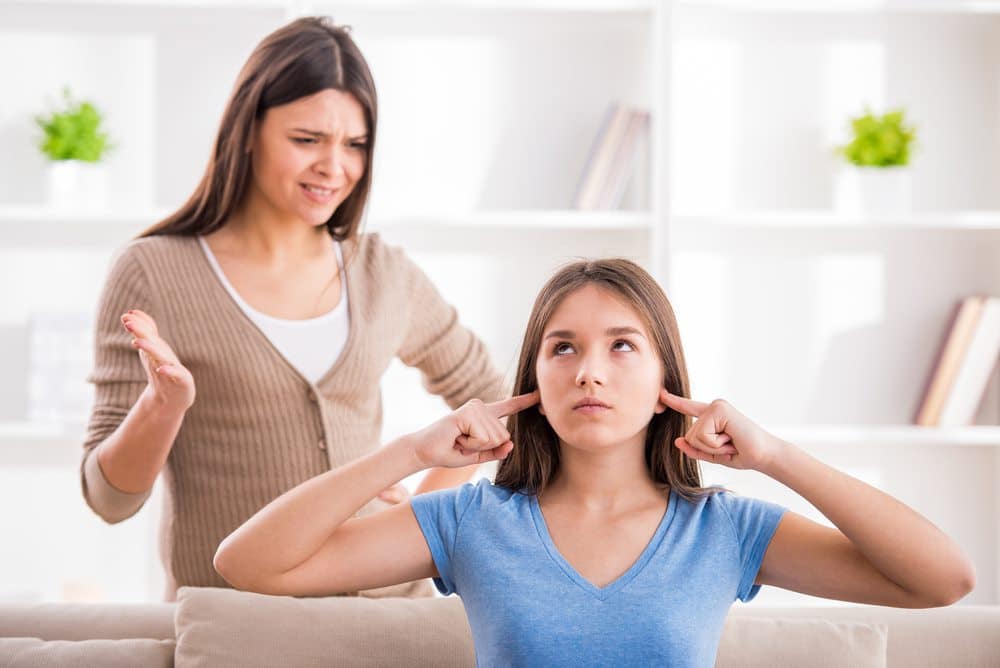If your child is resisting spending time with the other parent, it is likely that you are facing a complex, stressful and upsetting situation. Not only must you consider the needs and wants of your child, but you may find yourself in the difficult position of having to look to where the law stands on whether you must insist that your child spends time with the other parent. It is important for you to understand where the Court and the law stands on this difficult and personal matter. Of course, your safety and the safety of your child is of paramount importance. This article sets out what you need to know if you are wondering at what age, in what circumstances and whether your child can decide for themselves whether they spend time with their other parent In Australia.
Your Child and family law in Australia
In Australia, the Family Law Act 1975 establishes that every child has the right to be protected from physical or psychological harm or being subjected to, or exposed to, abuse, neglect or family violence AND a child has the right to form and maintain a meaningful relationship with both parents.
If a parent poses a threat to the child’s safety and it is likely that the child may be harmed by that parent or in the presence of that parent, then a child’s right to be safe takes precedence over the right to create and maintain a relationship with that parent. In that case, it is unlikely to be in the child’s best interests to spend time with that parent and a child may have less contact or supervised contact with that parent. But your child cannot make this decision on their own.
What age can a child legally decide which parent to live with?
The degree of weight the Court places on the child’s wishes depends upon their age and their maturity level. In short, there is no specific age when a child is considered old enough to have a say in their living arrangements. The Court may give significant weight to the wishes of an intelligent ten-year-old with a clear preference based on sound reasoning, over the wishes of a 14-year-old who wants to live with a more permissive parent. However, even if a child expresses a preference not to see one parent, the Court is unlikely to make such an order unless there is a risk of harm to the child.
The Court also considers whether the child has an informed understanding of their circumstances or whether one parent has unduly influenced the child. So, while an older child may have a definite opinion on where they wish to spend their time, legally, they cannot individually decide not to spend time with one parent. If you want to learn more about the circumstances that come into play during this situation.
What is Parental responsibility?
Under the Family Law Act, 1975, there is a presumption that both parents will have an equal parental responsibility. This means that they will share decision-making about major long-term issues affecting their child, such as where a child will attend school, or major medical issues. Therefore, if your child is not yet 18-years-old and you and your child’s other parent separate, you both have responsibility for your child, subject to any court order.
The Family Law Act 1975 (Cth), states that parenting is not a right but a responsibility. While a parent has certain authorities and powers over their child, but only to serve the best interests of the child and not to further the interests of the parent. In addition, a parent has both duties and responsibilities to their child.
Parental responsibility is made up of:
- Duties
- Powers
- Authorities
- Responsibilities
These four elements – powers, authorities, duties, and responsibilities – make up what is legally referred to as “parental responsibility”.
The presumption of shared parental responsibility does not apply if:
- it is not in the child’s best interests
- the parent has engaged in abuse of the child, or family violence
If you have heard parents claim that they have parental “rights”, or that they have a legal “right” to spend time with their child. It is important to understand that. under Australian law, this is an incorrect statement.
What Is Equal Shared Parental Responsibility?
In Australia, when your baby is born, both you and your child’s other parent has equal and shared parental responsibility. To clarify, a mother does not automatically have more parental responsibility than a father. Each parent has full responsibility, as an individual, for the child’s care, development, and welfare. Until the child is eighteen years of age, this commitment continues, unless there are court orders in place that determine alternative arrangements.
It stands to reason that without constant dialogue between the child’s parents, and agreement, the exercise of this responsibility can be extremely challenging. If communication between you and the other parent is tricky, decisions that have long-term impacts on your child can be particularly difficult and stressful to make. For example, one parent cannot unilaterally decide to allow your child to have a covid vaccine or other medical treatment, raise your child in a particular religion, or change your child’s school. If you have shared parental responsibility, you must both be involved in these important decisions that affect your child.
Equal time with a child is not the same as shared parental responsibility. If you have shared parental responsibility for your child, then even if one parent only spends time with your child once a week, that parent still has full, one hundred per cent parental responsibility for your child AND must agree to all important and major decisions. This concept is central to shared parenting.
Parents will spend equal time with the child, if the parents agree to spending equal time or if a court finds that equal time is in the best interests of your child, and it is the most appropriate arrangement in the circumstances.
What does ‘spending substantial and significant time’ with parents mean?
There are times when, even if you or your former partner have been doing your best at parenting your child or children, even if you think you are making the decisions in terms of their health, education, future and safety, your child may resist and even refuse to see you. Or it may be that the other parent of your child has not upheld their responsibilities and their obligations to speak courteously about you, if at all, to your child. In some situations, a parent may intentionally influence their child against the other parent, preying on the child’s vulnerabilities, willingness to please and their wish to retain the acceptance and love of one parent. If any of these situations sound familiar to you, you should seek legal advice immediately to find out your options.
Under Australian law, there is no specific requirement for a child to spend equal amounts of time with each parent. When the Federal Circuit and Family Court of Australia makes Orders as to how long each child spends with each parent, the Court will consider what is in the best interests of the child whether it is reasonably practicable for the child to spend certain time with each parent.
In every unique set of circumstances for each family, if it is not in the best interests of the child, or if it is not reasonable for the child to spend equal time with each parent, then the Court will consider whether the child should live with one parent and spend “substantial and significant” time with the other parent.
If it is in the child’s best interests, there are situations where a Court will order less than substantial and significant time with one parent. In Australia, the Court recognises that a child has a need and a right to spend time with their parents, and so it is extremely unusual for the Court to order that the child have no contact with one of their parents. But it does happen. For example, in a 2021 case, Niel & Zang, where the child had witnessed a violent confrontation between the father and the mother, and the father pleaded guilty to assaulting the maternal grandmother, the father behaved inappropriately at the contact centre where supervised access was to take place, following 15 months where the father refused to attend the contact centre for supervised access with the child and he refused to participate in a family report. In that case, greater weight was placed on the need to protect a child from psychological of physical harm over having a meaningful relationship with both parents.
In family situations where family violence has occurred, the Court will likely order that the child should have some contact with the parent, but there will be safeguards put in place such as supervised visits. In that case, face to face visits may be supervised by a social worker or other trusted adult. These visits may occur at a centre especially equipped for supervised time with a parent. They are especially set up so that parents do not have to see each other. If a Court considers that visits are not in the child’s best interest, the Court may still order contact via facetime, letter, or telephone.
What Is Taken Into Account When Deciding A Parenting Arrangement?
At law, a child under the age of eighteen does not have a deciding voice in their parenting arrangements. When deciding what is in their best interests, their parents, or the Courts, will decide. However, it is possible for parents to agree privately between them whatever parenting arrangements they feel would best suit the individual needs of their child or children.
If your circumstances mean that it is possible to agree a private parenting agreement with the other parent, then you have the flexibility to change the arrangement as your child grows, their needs change and your circumstances alter. A parenting agreement take any form that works for you and the other parent. The kind of adaptability a parenting arrangement will afford you would allow for the fact that a nursing baby may spend more time with their mother, with the other parent visiting. As the child grows and matures, your agreement may reflect that the child can spend longer spans of time away from their mother, and, over time, your child may transition to spending overnight, weekends or alternate weeks with the other parent once they begin a school routine.
In an ideal world, parents can make decisions about parenting arrangements cooperatively, keeping their focus on the child’s best interests at every developmental stage.
What happens if you and your child’s other parent cannot agree about parenting arrangements?
If you and your child’s other parent continue to disagree and you cannot come up with a plan that best meets the child’s individual needs and circumstances and the child’s best interests, a Court can make these important decisions and set Orders in place to provide continuity, structure, and routine for the child.
When parents cannot make these decisions privately, the Courts will step in. Under section 60CC of the Family Law Act, the Court must consider a number of factors when determining a parenting arrangement for a child. The two primary considerations are that the child have a meaningful relationship with both parents, and that the child is protected from physical or psychological harm.
What does ‘Best Interests of the Child’ mean?
The Family Law Act 1975 focuses on the responsibilities that each parent has towards their children, and on the children’s rights, rather than on parental rights. The Act aims to protect children from physical or psychological harm and to make sure that children can enjoy and maintain a meaningful relationship with each of their parents.
What must a Court consider when making a decision about parenting arrangements?
The Court considers multiple factors when deciding on parenting arrangements, including:
- the child’s relationship with each parent; and
- the child’s relationships with other people including grandparents; and
- the likely effect of the new parenting arrangement on the child; and
- the logistical, practical difficulties of the child communicating with- or spending time with- both parents;
- each parent’s capacity to meet the needs of the child; and
- the child’s wishes.
When taking into account the child’s wishes, a two-fold test is applied:
- The child’s age:
In Australia, until the child turns 18, the child is legally a minor. This means that if your child is 17 years old, their opinions and wishes can be completely ignored. Therefore, there is no set age for the wishes of the child to be considered. However, usually, the wishes of an older child are given more weight.
- The level of the child’s maturity:
The most important consideration, the level of the child’s maturity, is more determining.
In practice, this means that there have been matters where more weight is given to the views of a mature 11-year-old, who understands the consequences and dynamics of the current parenting circumstances that to the views of a 17-year-old who does not exhibit logical, mature comprehension of their situation.
Who assesses the child’s maturity and level of understanding?
It is up to the Court to decide the child’s maturity and level of understanding. To establish the level of the child’s maturity, the Court is assisted by a family consultant, for example, a psychologist or social worker. The family consultant meets with the child and assesses their decision-making ability and maturity level. The family consultant reports your child’s understanding of the current parenting situation to the Court.
The Court will usually rely on advice from family consultants and experts when making a decision. For instance, the Court may order that a trained counsellor, therapist, or psychologist produce a family report.
In order to fully appreciate the family dynamics and, importantly, the child’s concerns, needs and wishes, a family report writer typically interviews all family members including siblings, grandparents, stepparents, and stepsiblings.
The family report writer gives recommends parenting arrangements to the Court founded in what the report writer considers to be in the child’s best interests, taking into account all of the circumstances. Sometimes, these recommendations do not accord with the child’s wishes. Usually, if the child’s wishes are not followed, the report writer will explain the reasons for their recommendations.
The Court may appoint an Independent Children’s Lawyer so that the child’s interests and wishes are represented in Court proceedings. While the Independent Children’s Lawyer may not be child psychology expert, they provide the Court with an unbiased report on the child’s opinions.
When assessing the level of the child’s maturity the Court may also rely on other evidence, for example parent’s or teacher’s affidavits. These affidavits can provide the Court with additional information as to the consequences for the child of any parenting arrangements.
The Court will take a forensic approach in order to make an independent finding about the child’s wishes. This means that the court will explore what specifically caused the child to have the views and wishes that they hold.
Can your child choose not to visit a parent?
As discussed, if your child is not yet 18-years-old they cannot legally choose to:
- live with one parent over another.
- ignore the visitation provisions in either a court ordered parenting arrangement or a private parenting arrangement.
It can be challenging to enforce parenting arrangements. However, a parent must do everything that they can to encourage and foster a positive relationship with their child’s other parent. If your child does not cooperate with visits, both you and the other parent should work together to develop solutions, including a professional such as a counsellor or psychologist to assist your child. You and the expert you have engaged to assist will need to find out the reasons for your child’s concerns. For example, if your child is having to navigate a blended family and if your child feels uncomfortable around stepparents or stepsiblings, both parents should work to assist the child to adjust, and to give them the reassurance, love, and time they need to feel that they are important to you and that their needs matter.
It is important to make sure that you can demonstrate that you are doing what you can to assist your child or your children to have a meaningful and positive relationship with the other parent. The Court takes a dim view of either parental alignment or parental alienation. Parental alienation is where one parent tries to turn their child against their other parent. You must continue to make every effort to do whatever you can to ensure your child has a meaningful relationship with you and the other parent, as long as it is safe to do so for your child.
Do you know why your child is uncomfortable?
You should immediately seek legal advice, inform the police and child welfare authorities, and stop your child from visiting the other parent. If you have parenting orders in place, keeping your child away from their parent is a breach of the parenting order, but unless you contravene the orders frequently, you are unlikely to face punishment. Breaching an order is serious and you can face court costs or even imprisonment if there are repeated breaches and there is no grave reason for doing so. Make sure that you obtain legal advice. Our experienced family lawyers will advise you on the most appropriate course of action in your circumstances. This may include, applying to the Court for a variation of your existing parenting order or even a family violence order to protect you and your child or children.
What should you do if you are afraid that your child will be harmed?
If you and your child’s other parent continue to disagree and you cannot come up with a plan that best meets the child’s individual needs and circumstances and the child’s best interests, a Court can make these important decisions and set Orders in place to provide continuity, structure, and routine for the child.
When parents cannot make these decisions privately, the Courts will step in. Under section 60CC of the Family Law Act, the Court must consider a number of factors when determining a parenting arrangement for a child. The two primary considerations are that the child have a meaningful relationship with both parents, and that the child is protected from physical or psychological harm.
DVO’s Explained: What You Need To Know About Domestic Violence Orders
If you’re afraid that your child is or will be harmed if they spend time with your former partner, you can request that a Domestic Violence Order is taken out in their name. Check out our blog about DVO’s Explained: What You Need To Know About Domestic Violence Orders!
If your child does not have contact with the other parent, is the other parent still financially responsible for your child?
Yes. Even if the other parent has no contact or limited contact with your child, they are financially responsible for your child. This is because financial responsibility for a child is separate to parental responsibility. Both parents are financially responsible for their child, even if they have no contact with the child.
Anumis Legal: here to help you now
If you are negotiating your parenting agreement, you need advice about drafting your Consent Orders, or you need representation in family court proceedings talk to our experienced Anumis Legal famliy law ‘Dream Team’ on 07 5455 6347 to make an appointment for your complimentary chat or email admin@anumis.com.au to set up your free consultation, now.

Nadine Love is a lawyer and part of “the dream team” at Anumis Legal. She completed her law degree at Southern Cross University and received the New South Wales Bar Association Prize for Evidence and Civil Litigation. In addition to her passion for family law and therapeutic jurisprudence Nadine is also a celebrated international author, personal & business coach, drama therapist and motivational mentor. Nadine’s interests encompass swimming and walking in the rainforest with golden retriever Anu, and Australian Shepherds, Lex, and Onyx. She combines her strengths of advocacy, empathy and out-of-the box problem solving to support her clients to achieve their best legal outcomes.


